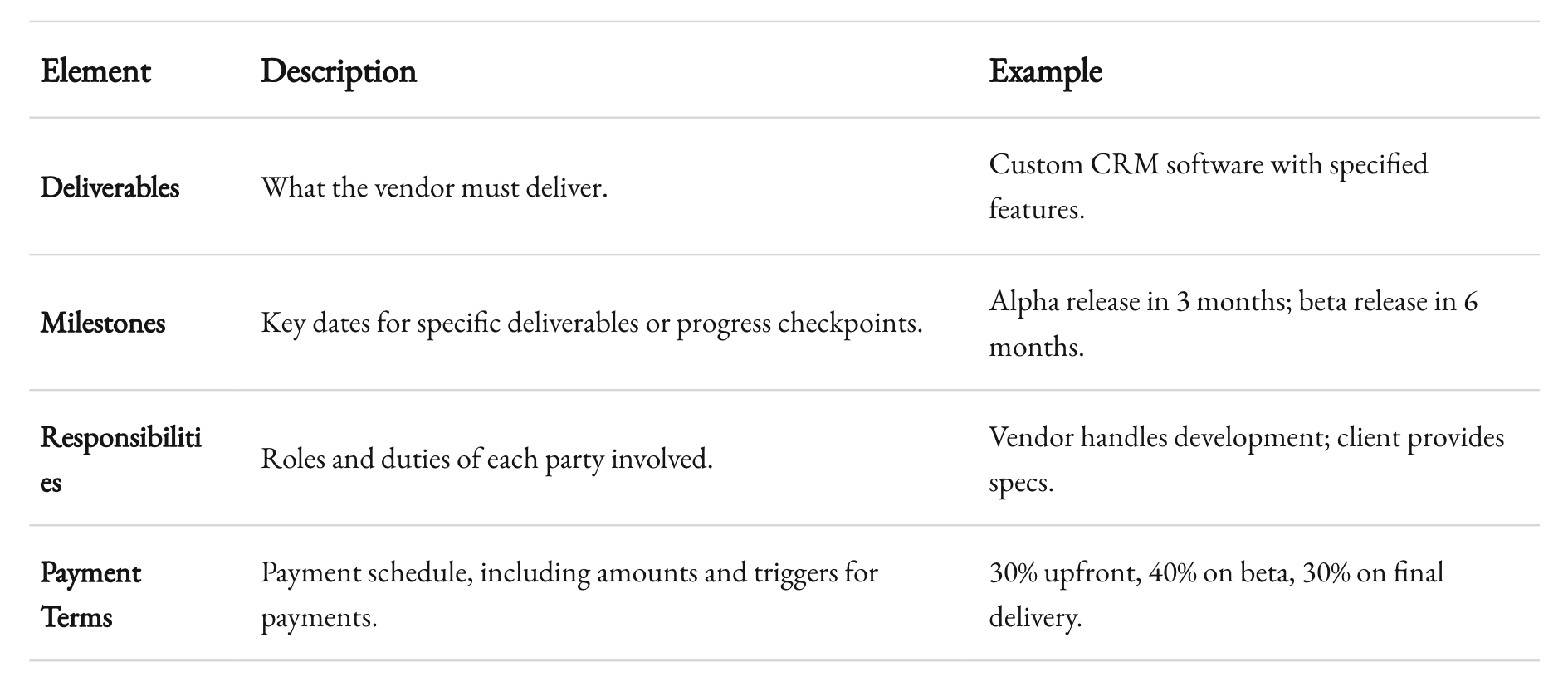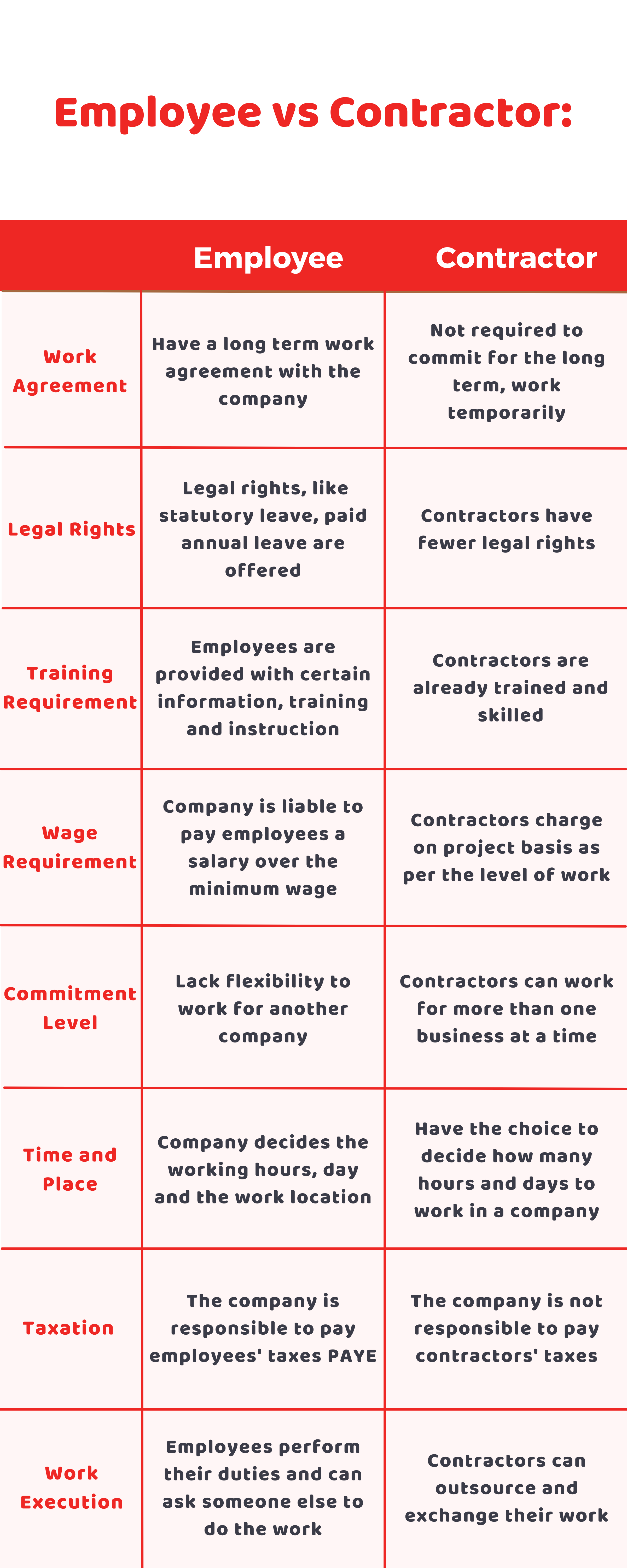What Are the Legal Considerations We Need to Be Aware of When Outsourcing?
Outsourcing 101: Safeguard your business with these must-know legal tips.

Outsourcing often feels like magic - poof! Those time-consuming tasks vanish, and someone else takes care of them. It’s efficient, scalable, and frees you up to focus on what you do best. Sounds like a no-brainer, right? But here’s the catch: there’s a lot more to outsourcing than just handing things off and hoping for the best.
Behind the curtain, outsourcing comes with a web of legal complexities. If you’re not careful, these can trip you up faster than you can say "cost savings." In this post, we’ll unpack the legal considerations every business should know when outsourcing. Let’s get to it.
Understand the Scope of Work
The first legal hurdle? Defining the scope of work. It sounds simple but often isn’t.
Why it matters: Ambiguity is a breeding ground for disputes. If you’re unclear about what you’re outsourcing, you’re setting yourself up for trouble. That’s why a detailed Statement of Work (SOW) isn’t optional; it’s essential.

Points to Include in a SOW:
- Deliverables: What’s being delivered, and when?
- Milestones: Break down the timeline into measurable chunks.
- Responsibilities: Who’s doing what? Your vendor’s role versus your internal team’s role.
- Payment Terms: When and how will payments be made?

Example: Say you’re outsourcing software development. Your SOW should specify:
- How features will be defined (e.g., user stories or functional specs).
- The testing protocols.
- The post-deployment support period.
Without clarity, disputes over “extras” can derail the relationship—and sometimes lead to litigation.

Data Privacy and Security Laws
Here’s a big one: data protection. Especially if you’re in industries like finance, healthcare, or e-commerce.
Key Question: Will the vendor handle sensitive data? If yes, brace yourself for compliance headaches.
Regulations to Consider:
- GDPR (if dealing with EU citizens): Heavy fines await if you’re not compliant.
- CCPA (California): Protects consumer data rights.
- HIPAA (U.S. healthcare): Strict rules for health data.
- India’s DPDP Act: Applies if your vendor operates out of India.
Action Items:
- Perform a Security Audit: Vet your vendor’s security protocols.
- Data Processing Agreement (DPA): This should spell out:
- Data handling practices.
- Breach notification timelines.
- Liability in case of data misuse.
Here’s a pro tip: Ask for their certifications. ISO 27001 is a gold standard for information security management. No cert? Be cautious.

Intellectual Property Ownership
Outsourcing often involves intellectual property (IP). Software code, creative assets, algorithms—these are the lifeblood of modern businesses.

Potential Pitfall: Without explicit agreements, you may not own the IP you paid for. In legal terms, the default creator often retains ownership unless stated otherwise.
How to Protect Yourself:
- Work-for-Hire Clauses: Include a clause transferring ownership to your company.
- Non-Disclosure Agreements (NDAs): Prevent the vendor from using your IP elsewhere.
- Patents and Trademarks: Clarify who’s responsible for applying.
A Cautionary Tale:
In 2018, a fintech company outsourced its app development to a small firm. They skipped an IP agreement. When the app gained traction, the vendor demanded royalties. Costly lawsuits ensued.
Bottom line: Get it in writing.

Cross-Border Challenges
Outsourcing often involves working with vendors in different countries. While this can reduce costs, it introduces jurisdictional complexities.
Key Considerations:
- Jurisdiction: Which country’s laws govern the contract?
- Dispute Resolution: Use arbitration clauses to avoid drawn-out court battles.
- Taxes and Tariffs: Understand the tax implications of cross-border payments.
Real-World Insights:
- Time Zones: Misaligned time zones can complicate real-time problem-solving.
- Cultural Differences: Expectations around deadlines or quality might differ.
Pro Tip: Include a choice-of-law clause in your contract. For instance, "This agreement is governed by the laws of [State/Country]."

Vendor Accountability
A great contract holds both parties accountable. But enforcement matters too.

Include These Clauses:
- Penalties for Non-Performance: Missed deadlines? Subpar quality? Outline the consequences.
- Service Level Agreements (SLAs): Define metrics for success, like:
- Uptime percentages for IT services.
- Response times for customer support.
- Termination Rights: When can you walk away, and under what conditions?
Pro Tip: Periodic reviews. Schedule quarterly check-ins to evaluate performance.

Avoiding Employee Misclassification
If you’re outsourcing to individuals rather than companies, tread carefully. Misclassifying employees as contractors can lead to:
- Back taxes.
- Penalties.
- Legal action.
How to Stay Safe:
- Control vs. Independence: Avoid dictating how the contractor performs their work.
- Written Contracts: Clearly state that the person is an independent contractor.
- Local Laws: In countries like the U.K., IR35 rules govern worker classification.
Red Flag:
Some jurisdictions assume employment unless proven otherwise. Consult a labor law expert to navigate this.
Recap
Outsourcing can be a game-changer, but only if you’ve done your homework. From defining the scope to ensuring IP ownership, every step requires vigilance. The stakes are high, but so are the rewards.
One final tip? Always consult a lawyer specializing in outsourcing agreements. They’ll help you spot blind spots and set you up for long-term success.
Remember, outsourcing isn’t just a business decision; it’s a legal one too. Handle it with care.



